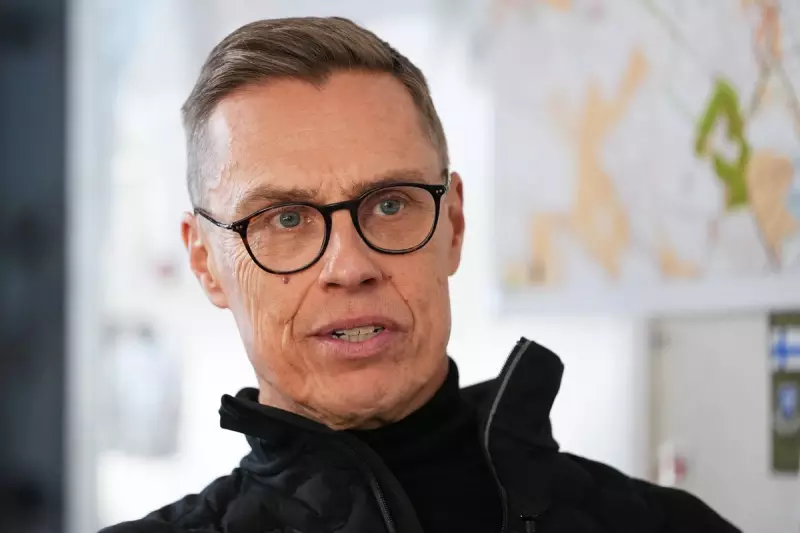
Finnish President Alexander Stubb has delivered a sobering assessment of the war in Ukraine, warning that a ceasefire is unlikely before spring and urging European allies to maintain steadfast support despite a corruption scandal in Kyiv.
Europe Must Show 'Sisu' Amidst Russian Hybrid War
In an exclusive interview with The Associated Press, President Stubb stated that Europe will require 'sisu' – a Finnish concept meaning endurance, resilience and grit – to withstand the winter months. He emphasised that Russia is continuing its hybrid attacks and information war across the continent, blurring the lines between war and peace.
Speaking on Saturday at a military base north of Helsinki, where he observed defence training in freezing temperatures, Stubb highlighted Russia's attempts to destabilise Europe through arson, vandalism, and propaganda. The Finnish leader advised that the way to counter these threats is to "be Finnish. In other words, be cool, calm, collected and have a little bit of that 'sisu.'"
Stubb's Crucial Role as Transatlantic Intermediary
As the leader of a nation sharing a 1,340-kilometer (830-mile) border with Russia, President Stubb leverages his unique position and his good relationship with US President Donald Trump. The two leaders have played golf together and speak regularly, enabling Stubb to act as a key European interlocutor.
"I can explain to President Trump what Finland went through or how I see the situation on the battlefield, or how do you deal with Putin? And then, you know, if he accepts one out of 10 ideas, that's good," Stubb told the AP.
He revealed that he interprets President Trump's positions to Ukrainian President Volodymyr Zelenskyy and vice versa, helping to bridge the gap in their notoriously tempestuous relationship.
The Long Road to a Ceasefire and Increased Pressure on Moscow
President Stubb outlined three major hurdles on the path to a ceasefire:
- Security guarantees for Ukraine
- Rebuilding its economy
- Resolving territorial claims
He expressed pessimism about achieving a ceasefire or beginning peace negotiations this year, suggesting it would be good to "get something going" by March.
To alter President Putin's strategic thinking, Stubb argued for maximising pressure on Russia by using tools such as the hundreds of billions in frozen Russian assets held in Europe as collateral to fund Ukraine. He also advocated for increasing military pressure on Moscow.
While praising President Trump for sanctioning major Russian energy companies Lukoil and Rosneft in October, Stubb insisted more must be done to give Ukraine the capacity to strike Russia's "military or defense industry".
The Finnish president also addressed the recent corruption scandal in Ukraine, stating that President Zelenskyy must deal quickly with allegations of kickbacks and embezzlement, as the situation "plays into the hands of Russia". Despite these challenges, he urged European leaders to look at boosting financial and military support for Kyiv, which faces creeping gains by Russia on the battlefield.
Drawing on Finland's own history, having lost about 10% of its territory to Moscow after two wars in the 1940s, Stubb is well aware of what's at stake. This historical perspective informs his unwavering support for Ukraine and his patient, reality-based approach to the complex diplomatic negotiations required to achieve peace.





